Sinn Féin accuses DUP of creating 'political limbo'
- Published
- comments
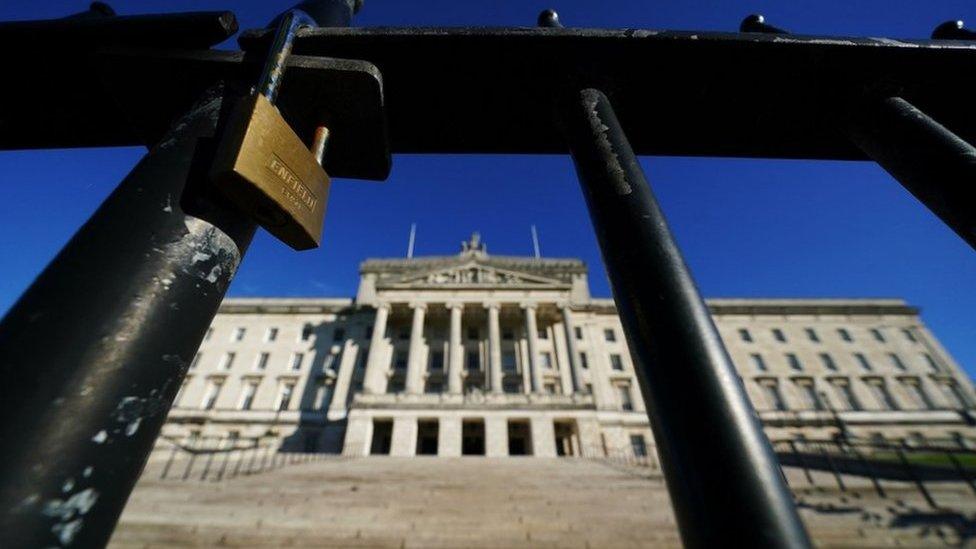
Devolved government at Stormont has not functioned properly since February - but now has no government at all
Northern Ireland is in a "political limbo created by the DUP and extended by the British government", according to Sinn Féin.
Conor Murphy was speaking after politicians missed the deadline set by Westminster for restoring the Stormont executive.
The Northern Ireland secretary said he would call a fresh election but he has yet to set a date.
But Gordon Lyons of the DUP said the focus should not be on elections.
Friday marked the legal deadline for the formation of a power-sharing executive following May's assembly election, but because it passed Northern Ireland is now on course for another poll.
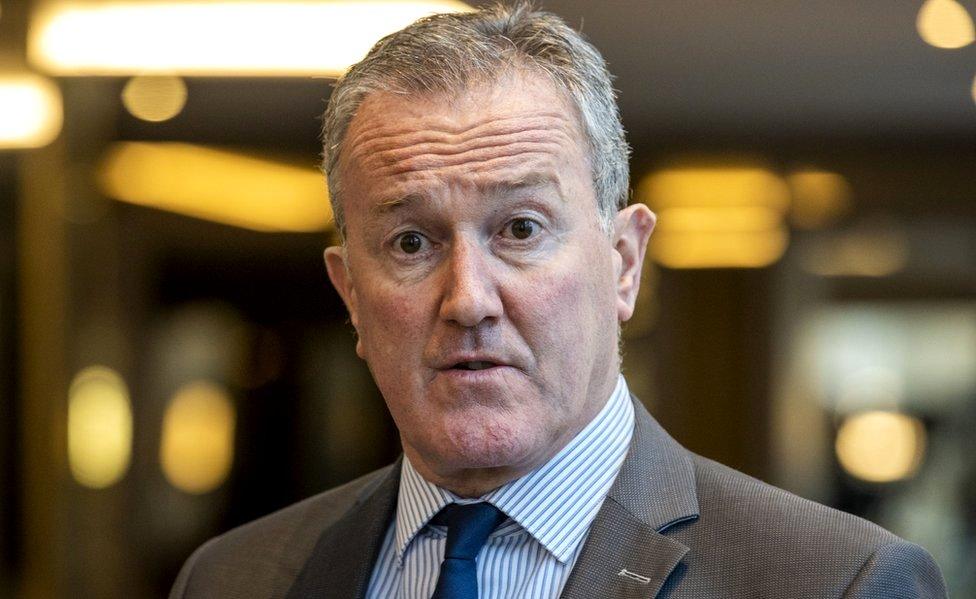
Conor Murphy has blamed the DUP and British government for the impasse
Chris Heaton-Harris, the Northern Ireland secretary, has said he has a duty to act and is expected to meet politicians on Tuesday.
Mr Murphy said the current situation, of not having an election date, was "symptomatic of a general degree of chaos that is going on within the Conservative Party over the last number of months".
"We have been collateral damage from that, and I suppose the irony is that the DUP are holding out and preventing us from forming an assembly and an executive on the basis that they will have some influence over the Conservatives," he told the BBC's Good Morning Ulster programme on Monday.
"You can see very clearly, with the chaos that is going on, that that strategy isn't working and that the only people that are suffering as a consequence of that strategy are the people that we collectively represent.
"So we are no clearer today, than we were on Friday as what the Secretary of State intends to do."
The Democratic Unionist Party (DUP) has refused to return to power-sharing government in Belfast until the Northern Ireland Protocol is scrapped or changed.
The protocol was agreed between the UK and the EU to avoid goods checks across Ireland's land border after Brexit.
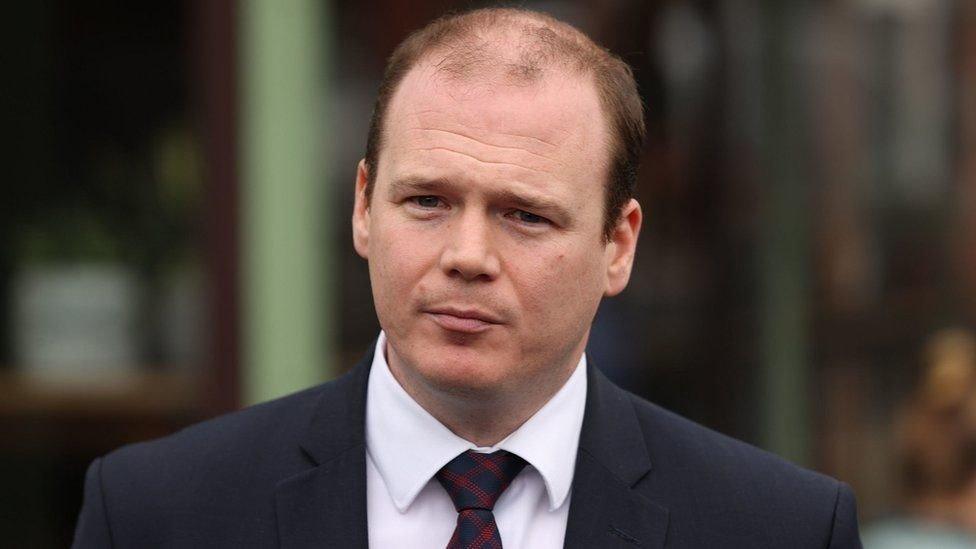
Gordon Lyons, DUP, said the focus should not be on elections
Mr Lyons said on Monday that the government needed to focus on "how we can get these issues resolved".
"It has been well rehearsed, we know what they are - they need to spend the time negotiating with the EU to get them resolved, or failing that, putting the Protocol Bill through parliament," he told BBC Radio Ulster's Good Morning Ulster.
He added: "We need to get this sorted, we want to see this resolved to make sure we are in a position to get an assembly and an executive in place, but there can't be a solid basis for an executive or an assembly, until the protocol is replaced with arrangements that restore Northern Ireland's place in the UK internal market and see our constitutional arrangements respected.
"I think this is all a bit of a distraction from the real work that actually needs to be done - that's where the focus of the Northern Ireland Office (NIO) should be."
On Monday, the House of Lords continued to debate the Northern Ireland Protocol Bill.
If the bill is passed into law it would give the British government sweeping unilateral powers to change the operation and oversight of the protocol.
The UK has suggested the legislation can be justified on the grounds of necessity under international law.
This argument has been rejected by the EU and most legal experts.
The Lords have been debating an amendment which would prevent the provisions of the bill coming into effect without the approval of the Northern Ireland Assembly.
This was described by Lord Kerr as "putting lipstick on the pig".
The crossbench peer said: "It would not make an illegal act less illegal if the Northern Ireland Assembly voted for it."
Former DUP deputy leader Lord Dodds also criticised the proposed amendment because it would not involve a cross-community vote at Stormont.
The former Brexit negotiator Lord Frost suggested the bill should be expedited to help bring stability to Northern Ireland.
He was thanked by Baroness Wheatcroft for "explaining how bad things have become in Northern Ireland as a result of the treaty he negotiated".
Baroness Suttie who tabled the amendments on a role for Stormont later withdrew them but said she reserved the option of reintroducing them at a later stage.
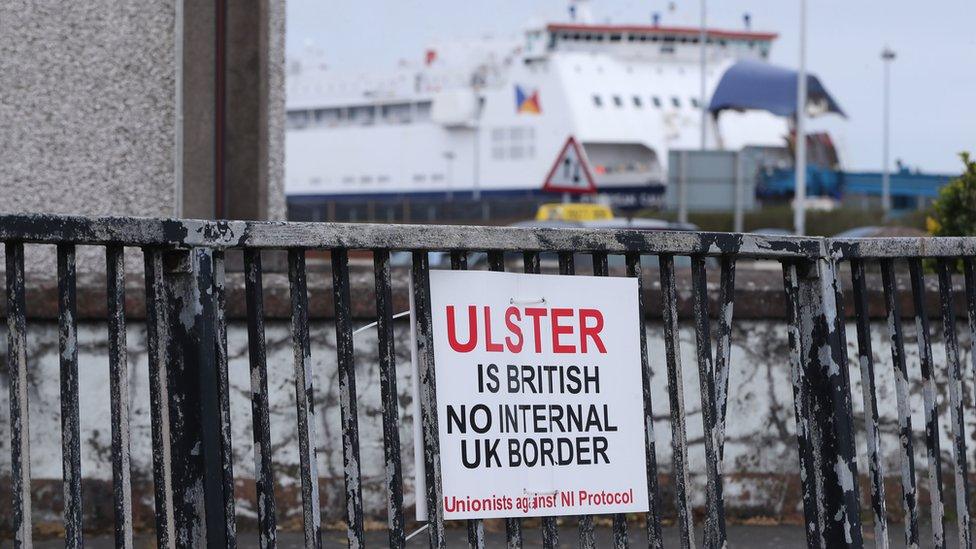
All of NI's unionist parties have objected to the protocol because it created a trade border in the Irish Sea
Officials have been discussing things like reducing the burden of customs administration, with a view to resuming talks at a political level.
But other parties at Stormont have urged the DUP to return to power-sharing while the talks continue in order to run public services and help alleviate the cost of living crisis.
Sinn Féin's vice-president Michelle O'Neill accused the DUP of trying to "hide behind the issues of the protocol".
Ulster Unionist Party leader Doug Beattie said he will tell the secretary of state that "he needs to have a plan" when they meet on Tuesday.
"There's no point going round and round in circles. If there's no plan there's no point in this," he continued.
Colum Eastwood, the leader of the Social Democratic and Labour Party, said the DUP "need to get into government" while people deal with a cost of living crisis.
'Reinforcing polarisation'
Meanwhile, Taoiseach (Irish prime minister) Micheál Martin has said the governance system in Northern Ireland is not "fit for purpose" following the failure to restore the executive.
Speaking to the Financial Times, external on Monday, Mr Martin said the parties should look at reforming the current rules that require the biggest parties from the nationalist and unionist designations to form an executive.
"The electoral system should not be one that constantly reinforces polarisation," he said.
The taoiseach said the rules for mandatory coalition were necessary following the 1998 Good Friday Agreement but that there is a "healthy spread of parties now", particularly after the Alliance Party's success in May's elections.
Alliance Party deputy leader Stephen Farry said Mr Martin's remarks were welcome.
"The most obvious and viable forward to allow for governance of Northern Ireland is to give a cross-community coalition of the willing an opportunity," he said.

Read more: Stormont crisis explained

Related topics
- Published30 October 2022
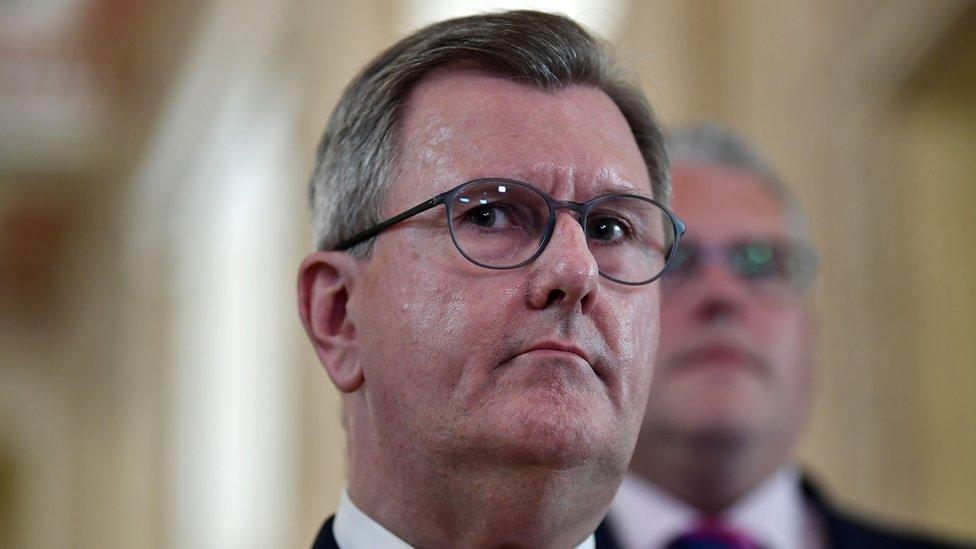
- Published29 October 2022
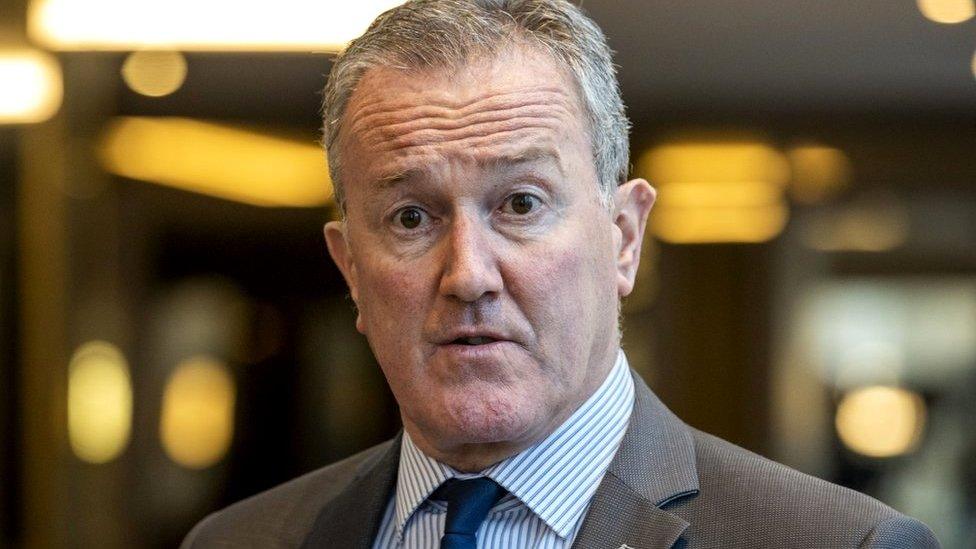
- Published2 February 2024
